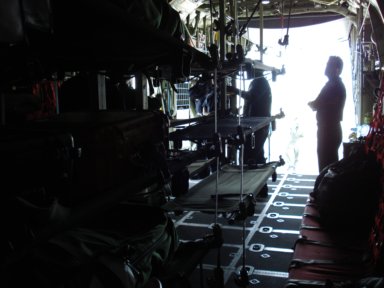I don't mind the work - going in and seeing patients every day, following up on their care, seeing their progress. Not too bad. It's the rounds. Rounds are where every patient is presented to the attending and a care plan is developed for each one.
On surgery, you start around 0630 with the senior resident and see all your patients by the time of the first OR case... usually around 0830 or 0900. You "pre-round" earlier and get all the information (vitals, labs, xray results, etc.) about your patients so that you can present them during rounds. At each patient's room, the resident or medical student following the patient presents the information to the senior resident. One person holds the patient's chart and writes orders as the care plan is developed. Depending on the amount of time and/or number of patients, some teaching is done about a particular topic or disease process. Later in the day, in between cases, you round with the attendings and give them an update on their patients.
In Geriatrics, rounds are scheduled to start at 0930. Our attending this week has been showing up around 1000. Then you sit in a room and talk about all the patients. In surgery, we used to call this the "card flip" in honor of a scene in the "House of God" where instead of physically going from room to room you quickly talk about all the patients. However, in Geri nothing happens quickly. We usually spend a good hour or two talking about the patients. Disease topics and social issues are brought up. Teaching is the primary focus.
THEN, you go see the patients on "walk rounds". You stand around while the attending performs their physical exam on your patient. I sometimes feel like an animal trainer at a dog show hoping that my patient will perform for my attending as well as they did for me earlier in the day. However, by now it's around 1300, and all you can think about is how that bagel and coffee you had at 0800 are long gone, and wondering when are you going to eat lunch. Of course, it's around this time the attending decides to start a diatribe on diabetes and wound care, and all the while my mind is drifting andgoing through the indications for an above the knee amputation vs a below the knee amputation. Several minutes later and thinking about the time I launched the bone saw across the OR, I look up to see that the team has already moved onto the next room; stomach grumbling and looking at the list to see how many more patients have to be seen, I follow them.
So, this happens every single day. After rounds, we grab patient charts, make sure we have orders for the next day, follow up on any consults that might have seen the patient during the morning/afternoon, and then get ready to sign out. Of course, that's if there isn't an afternoon lecture, or some other discussion group that you have to go to... uugghh..
Luckily, I had today off... which is good because I went out for dinner and drinks with colleagues from the MICU last night, and I woke up this morning with a bit of a headache and dry mouth. I also didn't sleep very well due to a new addition to the family.... yes, I went and did it.... I got a new cat. Her name is Lacey. She's about six months' old and was abandoned and picked up as a stray. She's really skinny, and needs a bath once the spaying wound heals, but she's lovely.

Right now there's a little bit of a war zone going on in the house, with everyone except for Lacey on edge. I kept her in my bedroom and the other cats are upset with not being able to sleep with me. There's a lot of hissing from Winston and skulking from Sophie. I've heard these things take time, so hopefully, soon, I'll be able to open doors and have the family all together....
Tomorrow, back for "weekend rounds" that are supposed to be short and efficient... we'll see.











